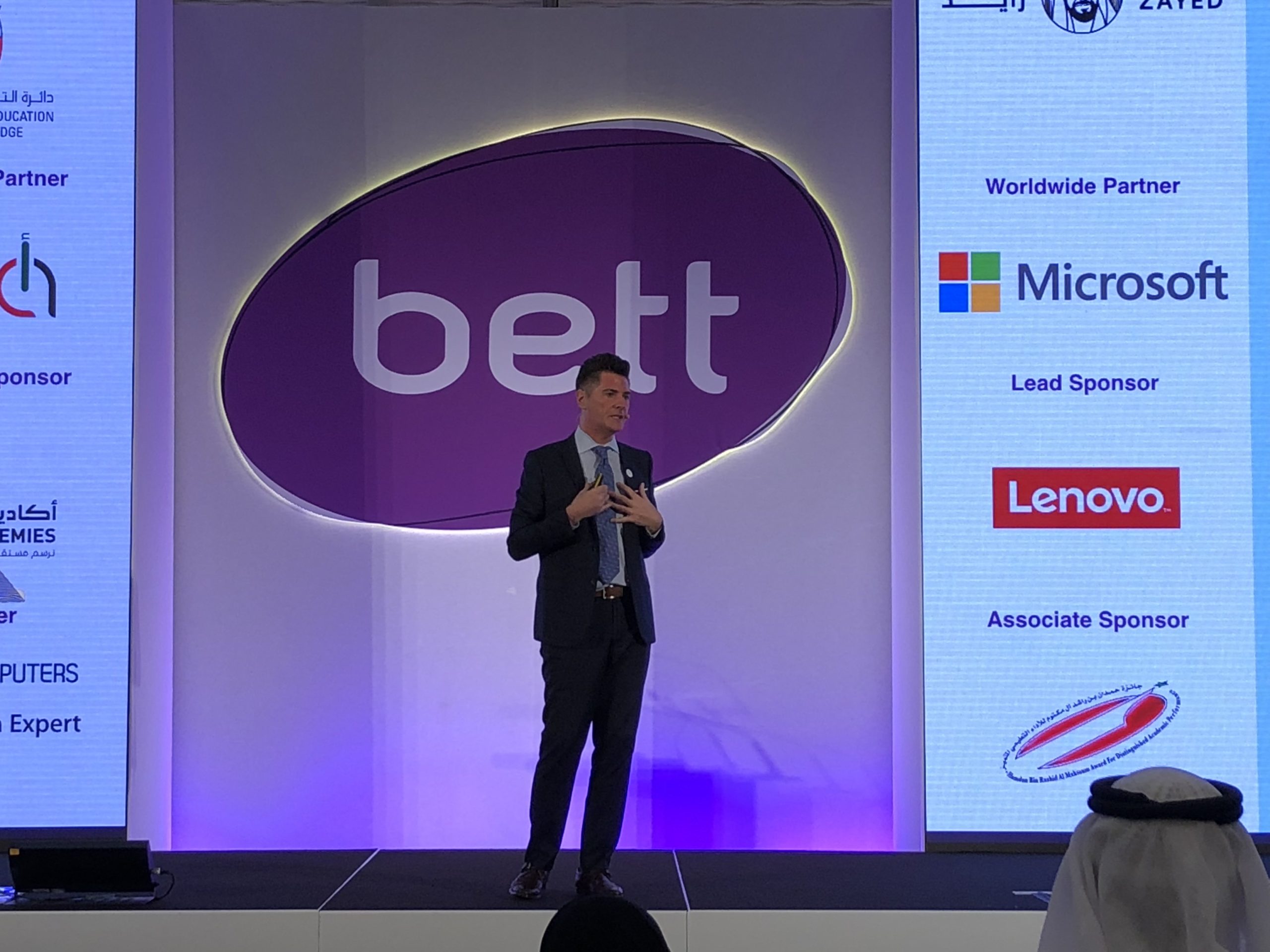Education
Microsoft demonstrates power of collaborative learning at BETT Middle East and Africa 2018

Microsoft marked its presence at the BETT Middle East and Africa (MEA) Leadership Summit and Expo for the third consecutive year, further highlighting the company’s deep commitment to regional education, employment and economic development.
Taking place on 23 – 24 April, under the patronage of His Highness Sheikh Hazza bin Zayed Al Nahyan, Vice President of the Abu Dhabi Executive Council, this will mark the first year BETT MEA has been held at the Abu Dhabi National Exhibition Centre (ADNEC). Acting as Worldwide Partner for the series, Microsoft demonstrated its commitment to empower every student and teacher to achieve more, by showcasing the power of its products and solutions in digitally transforming classrooms.
From its popular devices and productivity apps, to next-generation education solutions incorporating mixed-reality capabilities, Microsoft illustrated the changing role of technology in the classroom. To give educators the full power of the Microsoft ecosystem the company also showcased Microsoft 365 Education, which brings together Office 365, Windows 10, Enterprise Mobility + Security and Minecraft: Education Edition in a single, affordable solution built for education.
With mounting pressure on educational institutions to continually improve student achievement and prepare them with skills they’ll need when they enter the workforce, the aim of Microsoft 365 Education is to get schools up and running faster through simplified acquisition and deployment. This improves time efficiency and delivers new capabilities to teachers and students to help them learn and work in new ways. The company enlisted the aid of real students from the Microsoft Showcase Schools programme to help run the demos at its BETT MEA 2018 stand and show that collaborative learning models can help to build much-needed soft skills, such as emotional and social aptitudes.
This year’s BETT MEA hosted 2,500 educators, policy-makers, thought-leaders, stakeholders and technology specialists, who came together to share their views on how to improve learning outcomes across the region. In addition to the technology showcase, Microsoft also participated in panel discussions, presentations and keynote addresses. Anthony Salcito, Vice President of Worldwide Education at Microsoft, in his keynote address spoke about how learning has transformed in today’s era and so has the modern workplace; and highlighted the importance of driving change in teaching and learning models, thus preparing students for the future workforce. Salcito’s keynote also shed light on the recent Mckinsey “Class of 2030” report that reveals how students want to develop the skills to navigate their own learning, and the need for personalization versus automation. Furthermore, he also talked about the role of cutting-edge technologies such as Artificial intelligence, Mixed Reality and Quantum computing, and how they contribute to transforming teaching and learning in increasingly innovative ways.
“It is a great pleasure to be returning to BETT Middle East, where we can participate in vital conversations with policymakers about how to improve the classroom for the modern student,” said Salcito. “This is a region of ambition and innovation, and we need to ensure that future economies are imbued with a confident, pragmatic and problem-oriented workforce, so that national economic visions can succeed. But, as the survey shows, we all need to collaborate on the challenges of delivering on that promise, by recognising the changing role of technology in the classroom and developing strategies for digital transformation that are student- and teacher-centric.”
McKinsey’s “Class of 2030” report – encompassing input from 2,000 students, 2,000 teachers and 70 thought leaders worldwide – revealed that children starting school now would be better prepared for the post-Fourth Industrial Revolution workplace if they were endowed with social and emotional skills. Only 42% of employers believe that today’s graduates are adequately equipped with those attributes.
The study showed that up to 40% of jobs in growth industries required soft skills and that emotional and social attributes were twice as predictive of a student’s academic results as home environment and demographics. More than 98% of students expressed a desire for more personalisation in the classroom, as opposed to automation, revealing a need for teachers’ time to be freed up. Teachers, on average, said the right technology in the classroom gave them 30% of their time back, allowing them to deliver more student-centric education. “Two in three of the children who are just now starting school will find themselves in jobs that don’t exist yet, according to a recent WEF estimate, so we need to rise to that challenge, because it is the responsibility of our generation to prepare the next for the post-Fourth Industrial Revolution workplace. Digital transformation plays a central role in that, to be sure, but Microsoft believes that educational institutes must lead the way in delivering soft-skills training and collaborative, student-centric learning experiences,” added Salcito.
-

 Banking & Finance2 months ago
Banking & Finance2 months agoOman Oil Marketing Company Concludes Its Annual Health, Safety, Environment, and Quality Week, Reaffirming People and Safety as a Top Priority
-

 News2 months ago
News2 months agoJamal Ahmed Al Harthy Honoured as ‘Pioneer in Youth Empowerment through Education and Sport’ at CSR Summit & Awards 2025
-

 OER Magazines2 months ago
OER Magazines2 months agoOER, December 2025
-

 News2 months ago
News2 months agoAI Security Conference 2025 Hosted by Securado Highlights the Changing Cybersecurity Landscape
-

 Insurance1 month ago
Insurance1 month agoSupporting Community Wellness: Liva Insurance Sponsors Muscat Marathon 2026 with Free Health Checkups
-

 Interviews1 month ago
Interviews1 month agoEXCLUSIVE INTERVIEW: TLS Rebranding Marks Strategic Leap Toward Innovation, Sustainability & Growth
-

 Insurance4 weeks ago
Insurance4 weeks agoLiva Insurance Supports Community Wellness Through “Experience Oman – Muscat Marathon 2026”
-

 Banking & Finance4 weeks ago
Banking & Finance4 weeks agoA New Platform for SME Growth: Oman Arab Bank Unveils Tumouhi































You must be logged in to post a comment Login